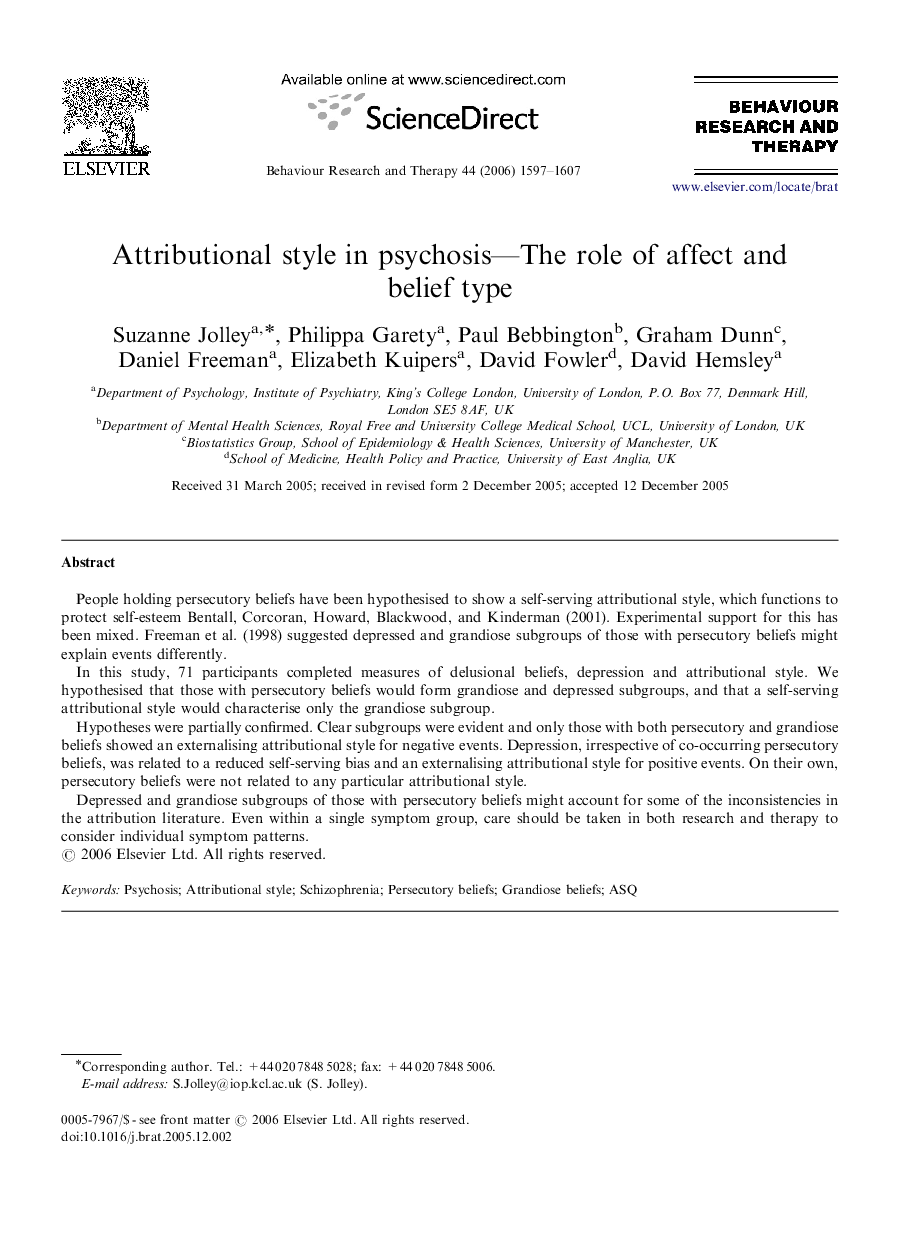| Article ID | Journal | Published Year | Pages | File Type |
|---|---|---|---|---|
| 902481 | Behaviour Research and Therapy | 2006 | 11 Pages |
People holding persecutory beliefs have been hypothesised to show a self-serving attributional style, which functions to protect self-esteem Bentall, Corcoran, Howard, Blackwood, and Kinderman (2001). Experimental support for this has been mixed. Freeman et al. (1998) suggested depressed and grandiose subgroups of those with persecutory beliefs might explain events differently.In this study, 71 participants completed measures of delusional beliefs, depression and attributional style. We hypothesised that those with persecutory beliefs would form grandiose and depressed subgroups, and that a self-serving attributional style would characterise only the grandiose subgroup.Hypotheses were partially confirmed. Clear subgroups were evident and only those with both persecutory and grandiose beliefs showed an externalising attributional style for negative events. Depression, irrespective of co-occurring persecutory beliefs, was related to a reduced self-serving bias and an externalising attributional style for positive events. On their own, persecutory beliefs were not related to any particular attributional style.Depressed and grandiose subgroups of those with persecutory beliefs might account for some of the inconsistencies in the attribution literature. Even within a single symptom group, care should be taken in both research and therapy to consider individual symptom patterns.
